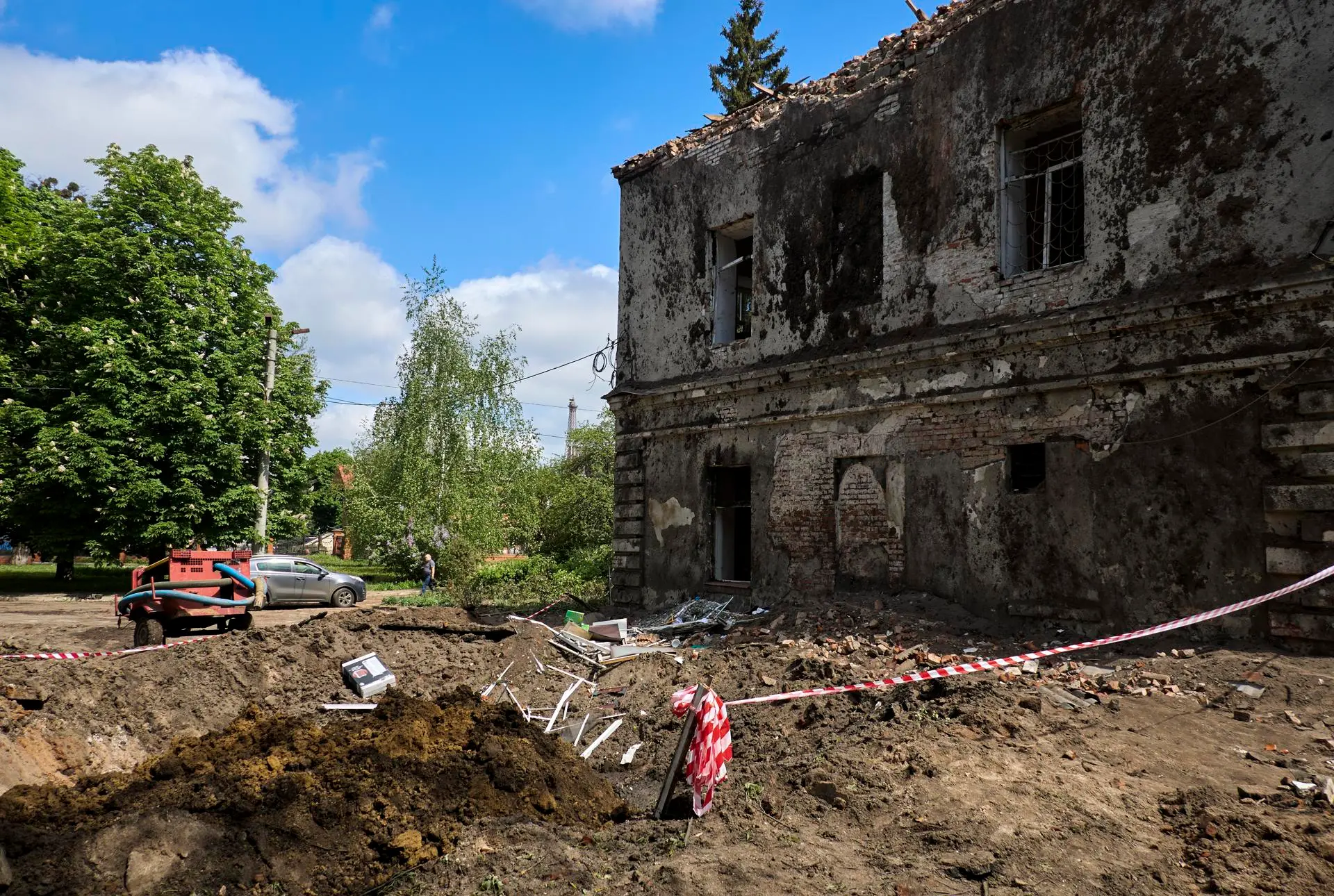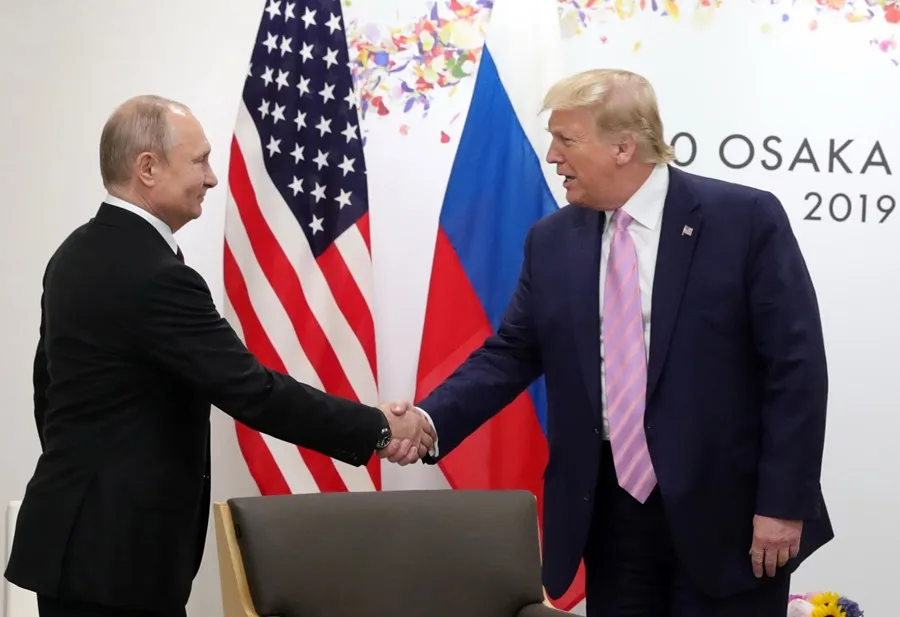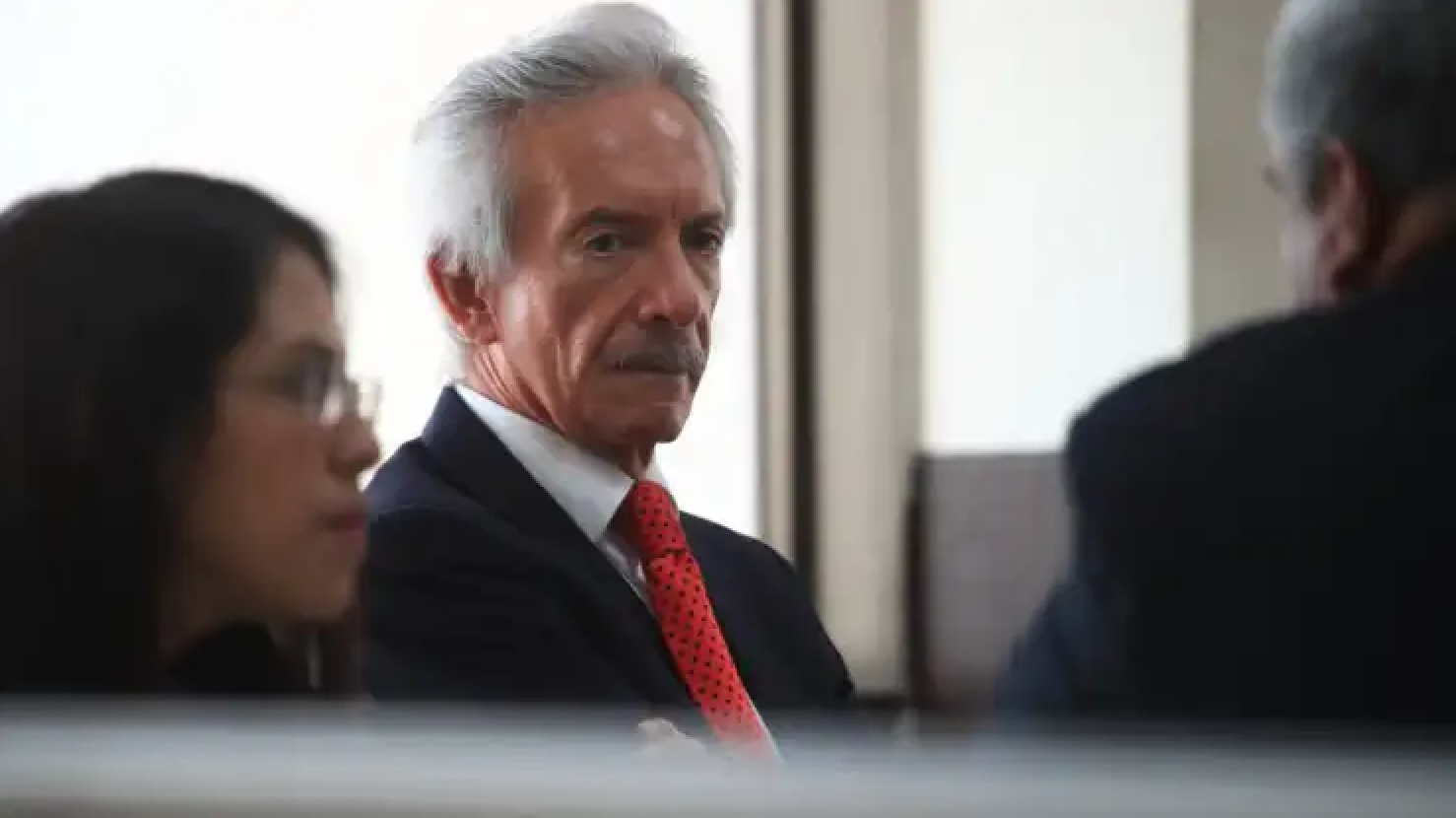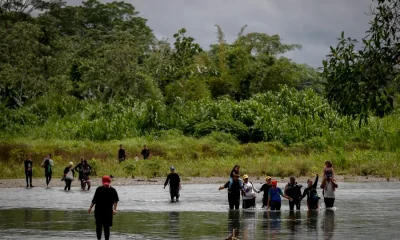International
EU countries agree to use profits from frozen Russian assets in defense of Ukraine

The ambassadors of the member states to the European Union (EU) reached an agreement on Wednesday in principle to use the benefits of frozen Russian assets to support “the recovery and military defense” of Ukraine in the face of Russia’s aggression.
“The EU ambassadors agreed in principle on measures on the extraordinary benefits of Russia’s fixed assets,” the Belgian presidency of the Council of the EU wrote in its profile of social network X.
He added that the money “will serve to support the recovery of Ukraine and military defense in the context of Russian aggression.”
The European Commission proposed last March to use the extraordinary benefits of Russian assets frozen by the sanctions in relation to the war in Ukraine, which amount to between 2.5 and 3 billion euros per year, to finance weapons and ammunition for that country mainly.
The first transfer of profits to help Ukraine defend itself against Russia is expected to take place in July.
Community sources detailed that 90% of the profits of fixed assets will go to the European Peace Support Fund (FEAP) for military support. The FEAP is an instrument through which EU countries co-finance the shipment of weapons to Ukraine since the beginning of the Russian invasion in February 2022.
The other 10% will go to the macro-financial aid package to Ukraine from the general budget of the European Union. This year, the community club agreed on an aid of 50 billion euros to Ukraine that is part of the revised community budget, covers the next four years until 2027 and is disbursed in the form of loans (33 billion euros) and grants (17 billion).
Most of the frozen Russian assets are deposited in Euroclear, a Brussels-based body that owns about 192 billion euros.
Belgium keeps a part of the profits of those securities in terms of corporate taxes, a fact that has been criticized by other Member States.
That country argues that it is a “general tax, not something that has been invented for Ukraine” and that part of what is collected serves precisely to help Kiev with its weapons needs and to support refugees.
The sources specified that the tax revenues generated in Belgium by those profits will continue to be allocated to Ukraine in its entirety.
The corporate tax is 25% in Belgium and applies to all companies, according to the sources, who insisted that it is impossible to eliminate it.
However, they recalled that in 2022 Belgium decided to allocate all those extraordinary corporate tax revenues to support Ukraine and that in 2023 they created a specific fund for it.
For the fiscal year of 2024, an amount of 1.7 billion euros of national corporate taxes is expected from immobilized Russian assets, of which about 1 billion have already been allocated to Ukraine.
The new legislation will apply to the remaining extraordinary benefits after this mandatory taxation, according to the sources.
The ambassadors of the Member States decided that the rate that Euroclear will charge for handling the assets will be 0.3%.
Some States such as Austria, Ireland, Malta and Cyprus are reluctant to buy weapons for Ukraine because of their policy of neutrality and Hungary has repeatedly said that it does not support the idea.
International
Trump urges Putin to reach peace deal

On Monday, U.S. President Donald Trump reiterated his desire for Russian President Vladimir Putin to “reach a deal” to end the war in Ukraine, while also reaffirming his willingness to impose sanctions on Russia.
“I want to see him reach an agreement to prevent Russian, Ukrainian, and other people from dying,” Trump stated during a press conference in the Oval Office at the White House.
“I think he will. I don’t want to have to impose secondary tariffs on Russian oil,” the Republican leader added, recalling that he had already taken similar measures against Venezuela by sanctioning buyers of the South American country’s crude oil.
Trump also reiterated his frustration over Ukraine’s resistance to an agreement that would allow the United States to exploit natural resources in the country—a condition he set in negotiations to end the war.
International
Deportation flight lands in Venezuela; government denies criminal gang links

A flight carrying 175 Venezuelan migrants deported from the United States arrived in Caracas on Sunday. This marks the third group to return since repatriation flights resumed a week ago, and among them is an alleged member of a criminal organization, according to Venezuelan authorities.
Unlike previous flights operated by the Venezuelan state airline Conviasa, this time, an aircraft from the U.S. airline Eastern landed at Maiquetía Airport, on the outskirts of Caracas, shortly after 2:00 p.m. with the deportees.
Interior Minister Diosdado Cabello, who welcomed the returnees at the airport, stated that the 175 repatriated individuals were coming back “after being subjected, like all Venezuelans, to persecution” and dismissed claims that they belonged to the criminal organization El Tren de Aragua.
However, Cabello confirmed that “for the first time in these flights we have been carrying out, someone of significance wanted by Venezuelan justice has arrived, and he is not from El Tren de Aragua.” Instead, he belongs to a gang operating in the state of Trujillo. The minister did not disclose the individual’s identity or provide details on where he would be taken.
International
Son of journalist José Rubén Zamora condemns father’s return to prison as “illegal”

The son of renowned journalist José Rubén Zamora Marroquín, José Carlos Zamora, has denounced as “illegal” the court order that sent his father back to a Guatemalan prison on March 3, after already spending 819 days behind barsover a highly irregular money laundering case.
“My father’s return to prison was based on an arbitrary and illegal ruling. It is also alarming that the judge who had granted him house arrest received threats,” José Carlos Zamora told EFE in an interview on Saturday.
The 67-year-old journalist was sent back to prison inside the Mariscal Zavala military barracks on March 3, when Judge Erick García upheld a Court of Appeals ruling that overturned the house arrest granted to him in October. Zamora had already spent 819 days in prison over an alleged money laundering case.
His son condemned the situation as “unacceptable”, stating that the judge handling the case “cannot do his job in accordance with the law due to threats against his life.”
-

 Central America5 days ago
Central America5 days agoNicaragua denounces Costa Rica’s position in SICA as aligned with foreign interests
-

 Central America5 days ago
Central America5 days agoNicaragua’s new judicial law consolidates power in Ortega and Murillo’s hands
-

 Central America5 days ago
Central America5 days agoPanama’s president declares Darién gap ‘closed’ amid sharp drop in migrant flow
-

 International3 days ago
International3 days agoSon of journalist José Rubén Zamora condemns father’s return to prison as “illegal”
-

 International5 days ago
International5 days agoMarco Rubio warns Venezuela against military action against Guyana
-

 International3 days ago
International3 days agoMiyazaki’s style goes viral with AI but at what cost?
-

 Central America2 days ago
Central America2 days agoPanama police clarifies that Interpol alert for Martinelli is still pending
-

 International2 days ago
International2 days agoDeportation flight lands in Venezuela; government denies criminal gang links
-

 Central America16 hours ago
Central America16 hours agoU.S. Homeland Security Secretary urges Mexico to strengthen Guatemala border
-

 International16 hours ago
International16 hours agoTrump urges Putin to reach peace deal
-

 Central America16 hours ago
Central America16 hours agoPanama grants Martinelli 72-hour extension to travel to Nicaragua
-
Central America4 days ago
Nicaragua revokes legal status of 10 more NGOs, bringing total to over 5,600















